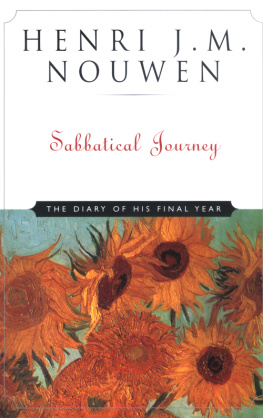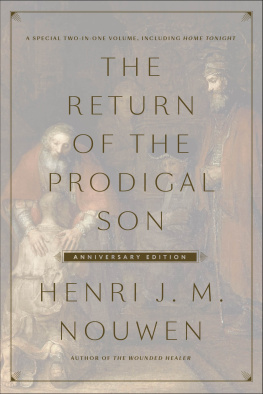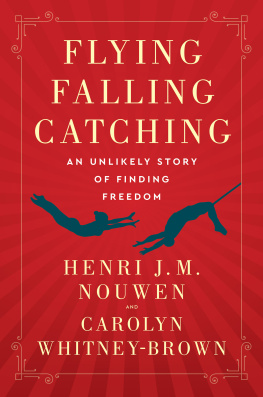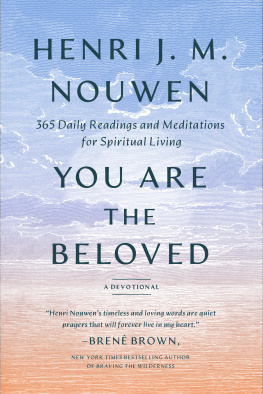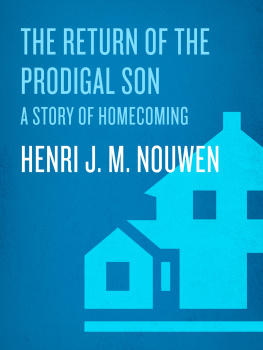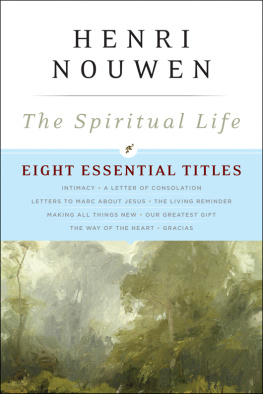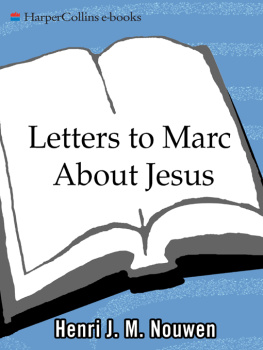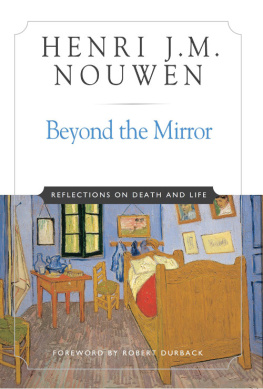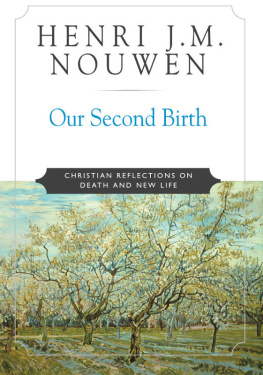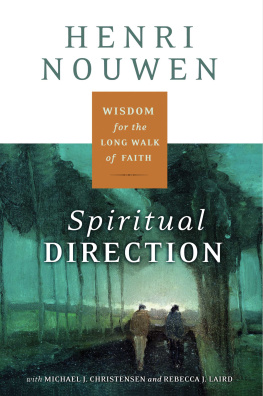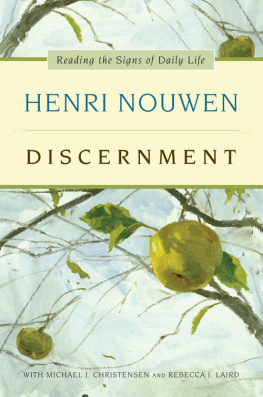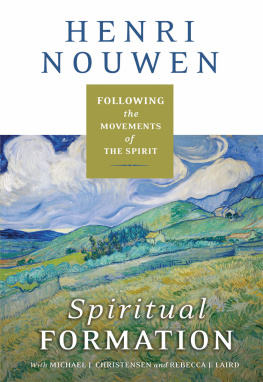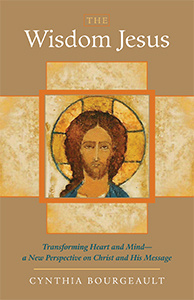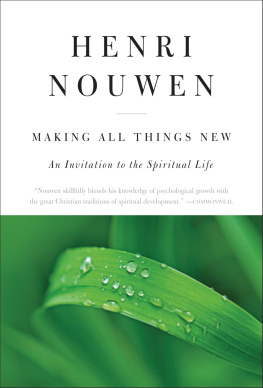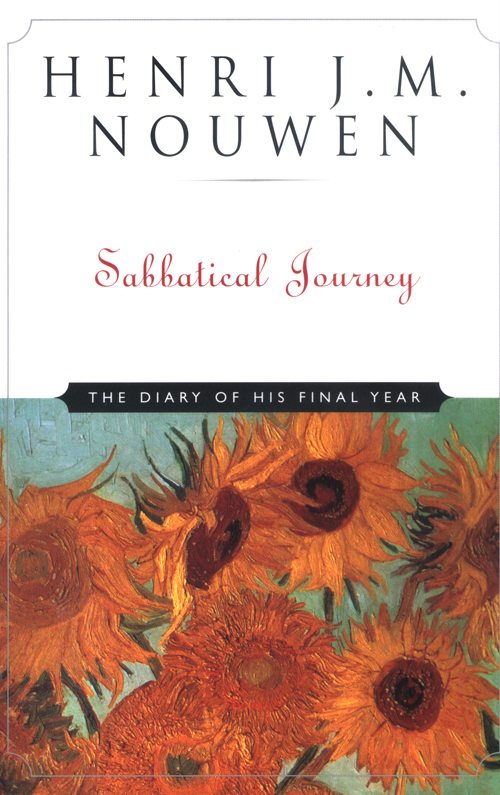
Sabbatical Journey
Henri J.M. Nouwen
Sabbatical Journey
THE DIARY OF HIS FINAL YEAR

A Crossroad Book
The Crossroad Publishing Company
New York
With special thanks to Sue Mosteller, Henris literary executor, who in her love for and dedication to Henri, summoned great energy to complete the enormous task of bringing Henris Sabbatical Journey to publication.
The Crossroad Publishing Company
www.crossroadpublishing.com
1998 by The Estate of Henri J. M. Nouwen
Quotations from Kevin W. Kelley, The Home Planet (pp. 142, 145), 1998 by Kevin W. Kelley. Reprinted by permission of Addison Wesley Longman.
Crossroad, Herder & Herder, and the crossed C logo/colophon are trademarks of The Crossroad Publishing Company.
All rights reserved. No part of this book may be copied, scanned, reproduced in any way, or stored in a retrieval system, or transmitted, in any form or by any means, electronic, mechanical, photocopying, recording, or otherwise, without the written permission of The Crossroad Publishing Company. For permission please write to .
In continuation of our 200-year tradition of independent publishing, The Crossroad Publishing Company proudly offers a variety of books with strong, original voices and diverse perspectives. The viewpoints expressed in our books are not necessarily those of The Crossroad Publishing Company, any of its imprints, or of its employees. No claims are made or responsibility assumed for any health or other benefits.
Library of Congress Cataloging-in-Publication Data available from the Library of Congress.
ISBN: 978-0-8245-1878-3
EPUB: 978-0-8245-2096-0
MOBI: 978-0-8245-2097-7
Books published by The Crossroad Publishing Company may be purchased at special quantity discount rates for classes and institutional use. For information, please email .
To each one of my friends who offered me the precious gift of love
Contents
On September 2, 1995, Henri Nouwen began his sabbatical year and promised himself that he would not let a day pass without writing down the things that were happening within and around him. When, on August 30, 1996, he made his last entry in the nearly seven-hundred-page manuscript, he completed his final book, and his vocation as an author was fulfilled. He died before rereading or editing the journal and before sending it, as was his custom, to several of his friends for feedback. I know that had he edited it he would have given much attention to his initial jottings and that he would have made many changes. In trying to be faithful to his original text I have not made many changes. The result is that the book lacks his completeness and finesse but it brims with his life and with his spirit.
In September 1995, after living with Henri for nine years, we, the people of his community, LArche Daybreak, sent him off for his sabbatical year with a mandate to say no to all work except writing. We overlooked, however, his need and his gift for friendship and what his appropriate response to that might be. This book recounts an odyssey of friendship; it required the stature of a Ulysses to make the exhausting journey and write five books along the way.
In the original journal Henri meets, celebrates, consoles, counsels, and connects with over a thousand people, and in friendship he mentions over six hundred of them by name. On the day after Christmas he says, My heart was full of gratitude and affection, and I wished I could embrace each of my friends and let them know how much they mean to me and how much I miss them.... I felt my whole being, body, mind, and spirit, yearning to give and receive love without condition, without fear, without reservation. Many of those he mentioned in the journal testify that their meeting with him was an event in their lives because he was so loving, so listening, and so generous with his time and his presence. For the most part Henri describes small, good encounters, but for the person in front of him, small was both beautiful and deep.
Henri, in his journal as in his life, is first and foremost priest and pastor. His passion for the daily celebration of the Eucharist is a thread running through the whole book. He celebrates with large groups at weddings and funerals, but personally he seems to be more nourished by small, intimate celebrations where there is a felt sense of community among the people. He comments on the Scripture texts of the day in conjunction with social issues, current events, a new book, or an artwork, and he makes amazing connections between his insights and his life experience. It is this dialogue between his mind and his hearts lived reality that characterizes his spirituality and that is a rich source of spiritual reading.
Throughout the journal Henri is plagued by fatigue. Why am I so tired? he asks himself. Although I have all the time I want to sleep, I wake up with an immense feeling of fatigue.... Everything requires an immense effort, and after a few hours of work I collapse in utter exhaustion, often falling into a deep sleep.... My body aches and longs for a place to rest. He is totally spent, yet neither he nor his friends recognize the foreboding quality of his exhaustion. His self-questioningAm I tired simply because I want to do my thing and cant get it done, or am I tired because I am carrying something larger than myself, something given to me to alleviate the burdens of others?is a thought-provoking theological reflection, but it is not a consoling one in the light of his untimely death.
His friends the Flying Rodleighs appear and reappear in his journal, connecting him more consciously to a new and deeper call in his vocation and his writing. The warmth of their friendship, their skill and grace on the trapeze, and their lifestyle as a small community of artists touched something very deep within him. He saw in their performance the artistic realization of some of his deepest yearnings, and he confesses that meeting them catapulted him into a new consciousness. He and his friends hoped that he would write his circus book during his sabbatical, but this project was related to a passage in his life and his writing that was pregnant in his consciousness but not mature enough to be born. He writes, It [knowing the Rodleighs] was so intense, that even today I do not dare to write about it because it requires a radical new step not only in my writing but also in my life. And, Whenever I start to write I experience an enormous hesitation, even fear. Much of Henris attraction to the trapeze performance had to do with the special relationship between the flyer and the catcher. The daredevil flyer swinging high above the crowd lets go of the trapeze to simply stretch out his arms and wait to feel the strong hands of the catcher pluck him out of the air. The flyer must never catch the catcher, Rodleigh had told him. He must wait in absolute trust. This relationship spoke to the inner aspirations of Henris heart and to his yearning to fly in the spiritual life, but only in relationship with and yielding more and more into the loving hands of the Eternal Catcher.
Throughout the sabbatical journey Henri is engaged in an inner tug-of-war between his growing attraction to solitude, prayer, writing, and more intimate friendship, and his lifelong attraction for preaching, lecturing, traveling, celebrating, and working with others to make things happen. Each time he returns to his writing he is happy to be there, and he often comments on his desire to be there more. But his struggle to close the gap between the ideal and the reality is so real, so painful, and so human!

